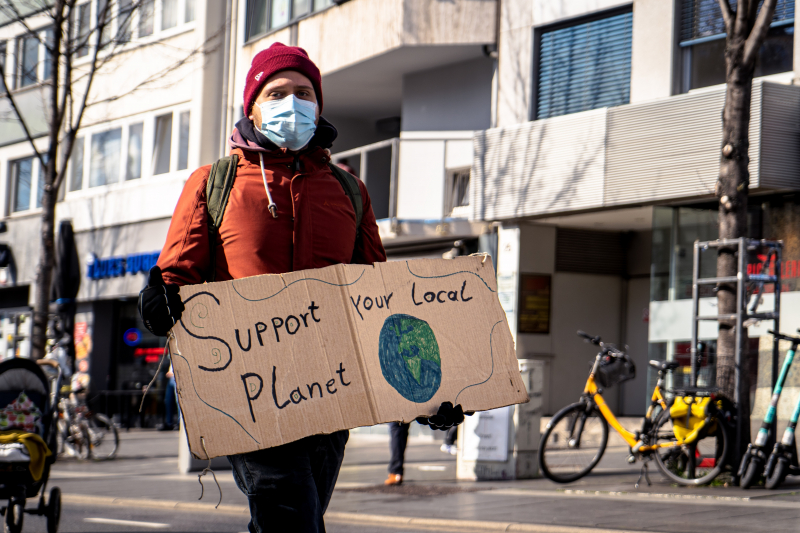Top 10 Good Controversial Essay Examples
Here is our curated collection of 10 good controversial essay examples. These brief, impactful essays explore contentious issues across various domains, ... read more...inviting readers to engage with compelling arguments that challenge norms and stimulate critical thinking. Uncover the power of controversy in shaping perspectives and driving intellectual exploration.
-
Topic: Discuss the role of social media in contributing to mental health issues and explore potential solutions for mitigating its negative effects.
Answer:
Social media, a pervasive force in contemporary society, has transformed the way we connect, communicate, and perceive the world. This essay critically examines the role of social media in contributing to mental health issues and explores potential solutions for mitigating its negative effects. As we navigate the digital landscape, understanding the complex interplay between social media and mental well-being becomes paramount.
Social media platforms offer unprecedented opportunities for connection, self-expression, and information dissemination. However, the constant exposure to curated, idealized versions of others' lives can lead to social comparison and the exacerbation of feelings of inadequacy, contributing to the rise of mental health issues such as anxiety, depression, and low self-esteem.
The digital realm is not devoid of the darker aspects of human interaction. Cyberbullying and online harassment, prevalent on social media platforms, have profound implications for mental health. The anonymity afforded by the digital space can embolden individuals to engage in harmful behaviors, creating a hostile online environment that negatively impacts the mental well-being of victims.
Social media algorithms often tailor content to users' preferences, creating echo chambers where individuals are exposed to information that aligns with their existing beliefs. This can contribute to polarization, echo chambers, and the reinforcement of extremist views, fostering an environment that heightens stress and anxiety, especially during contentious societal events.
The pervasive nature of social media can intensify the fear of missing out (FOMO) as individuals witness curated snapshots of others' lives. This constant social comparison can lead to feelings of inadequacy, loneliness, and diminished self-worth, acting as a catalyst for mental health challenges among social media users.
Addressing the negative impact of social media on mental health requires a multi-faceted approach. Education on digital literacy, promoting healthy online behaviors, and fostering open conversations about mental health are crucial steps. Additionally, platform developers can play a role by implementing features that prioritize user well-being, such as content warnings, algorithm transparency, and mechanisms for reporting harmful behavior.
In conclusion, the impact of social media on mental health is a complex and evolving issue that demands thoughtful consideration and proactive solutions. While social media offers immense benefits in terms of connectivity and information-sharing, its potential to contribute to mental health issues cannot be ignored. By acknowledging the challenges and implementing targeted interventions, we can strive to create a digital landscape that fosters positive mental well-being, empowers users, and nurtures a healthy relationship between technology and mental health.
Photo by camilo jimenez on Unsplash 
Photo by cottonbro studio: https://www.pexels.com/photo/man-in-black-hoodie-sitting-on-brown-couch-4100420/ -
Topic: Analyze the controversies surrounding climate change skepticism, addressing the scientific consensus and political implications of climate change denial.
Answer:
Climate change skepticism has emerged as a contentious issue, creating a divide between those who acknowledge the scientific consensus on climate change and those who remain skeptical. This essay critically examines the controversies surrounding climate change skepticism, delving into the scientific consensus, and exploring the political implications of climate change denial. As we confront the global challenge of climate change, understanding the complexities of skepticism becomes essential.
The overwhelming scientific consensus supports the reality of anthropogenic climate change. Research conducted by climate scientists and organizations, such as the Intergovernmental Panel on Climate Change (IPCC), consistently reinforces the understanding that human activities, particularly the burning of fossil fuels, contribute significantly to global warming. Climate change skeptics challenge this consensus, questioning the methodologies, motivations, and reliability of climate science.
The issue of climate change has become entangled with political ideologies, with skepticism often aligning with conservative political views. This alignment is influenced by concerns about economic implications, government intervention, and the perceived threat to individual freedoms. The politicization of climate change contributes to a polarized discourse, hindering collective action and policy implementation.
The influence of industries heavily dependent on fossil fuels further complicates the climate change debate. Sectors such as the fossil fuel industry have been implicated in funding climate change denial campaigns and lobbying against environmental regulations. The intertwining of economic interests and skepticism poses a challenge to crafting policies that address climate change effectively.
Media portrayal plays a significant role in shaping public perception of climate change. Skepticism is often amplified through media coverage that presents climate science as uncertain or controversial. The spread of misinformation and the lack of balanced reporting contribute to public confusion, hindering efforts to mobilize widespread support for climate action.
Despite the controversies surrounding climate change skepticism, the urgency of addressing climate change remains paramount. The consequences of inaction, from extreme weather events to rising sea levels, underscore the need for a united global effort. Bridging the divide between skeptics and believers is crucial for implementing effective policies, transitioning to sustainable practices, and mitigating the impacts of climate change.
In conclusion, the controversies surrounding climate change skepticism reflect a complex interplay of scientific understanding, political ideologies, economic interests, and media influence. Navigating this intricate landscape is essential for fostering informed discussions, challenging misinformation, and crafting policies that transcend political divides. As we confront the global challenge of climate change, the imperative is to unite diverse perspectives, recognize the urgency of collective action, and implement solutions that safeguard the planet for future generations.
Photo by Mika Baumeister on Unsplash 
Photo by NOAA on Unsplash -
Topic: Delve into the controversies surrounding the use of GMOs in agriculture, considering their impact on food safety, biodiversity, and ethical concerns.
Answer:
Genetically Modified Organisms (GMOs) in agriculture have become a focal point of controversy, sparking debates on their impact on food safety, biodiversity, and ethical considerations. This essay critically delves into the controversies surrounding GMOs, exploring the multifaceted issues that arise in the intersection of science, agriculture, and ethics.
Proponents argue that GMOs hold the potential to revolutionize agriculture by enhancing crop yields, increasing resistance to pests and diseases, and addressing global food security challenges. Scientific advancements in genetic engineering offer the promise of more resilient and productive crops that can withstand environmental stressors.
One of the central controversies surrounding GMOs revolves around food safety. Critics express concerns about potential health risks associated with consuming genetically modified crops, emphasizing the need for rigorous testing and transparent labeling. The debate over whether GMOs should be clearly labeled to inform consumers adds an ethical dimension to the discussion.
The cultivation of GMOs has raised concerns about its impact on biodiversity and ecological balance. The potential for gene flow to non-GMO crops and the development of resistant pests pose risks to natural ecosystems. Evaluating the long-term consequences of GMO cultivation on biodiversity becomes an ethical imperative in sustainable agriculture.
The concentration of GMO technology in the hands of a few biotechnology corporations raises ethical questions about corporate control and farmer autonomy. Issues such as seed patents, licensing agreements, and the economic dependence of farmers on these corporations contribute to a broader discourse on equity and justice within the agricultural system.
The act of manipulating the genetic makeup of organisms raises profound ethical questions. Deliberations on the moral implications of playing 'genetic engineer' involve considerations of humanity's responsibility to the environment, the welfare of future generations, and the potential unforeseen consequences of altering the genetic code of living organisms.
In conclusion, the controversies surrounding GMOs in agriculture underscore the complex interplay between scientific innovation, ethical considerations, and the practical challenges of sustainable food production. As society grapples with the potential benefits and risks of GMOs, finding a balance between technological advancements and ethical responsibility becomes crucial. The path forward involves informed dialogue, transparent regulations, and a commitment to fostering agricultural practices that not only address global challenges but also uphold the principles of environmental stewardship and ethical farming.
Photo by Markus Spiske on Unsplash 
Photo by Gabriella Clare Marino on Unsplash -
Topic: Analyze the controversies surrounding censorship in the arts, considering issues of freedom of expression, cultural sensitivity, and the role of art in society.
Answer:
Censorship in the arts has been a persistent source of controversy, provoking debates on the delicate balance between freedom of expression, cultural sensitivity, and the role of art in society. This essay critically examines the complexities surrounding censorship in the arts, exploring the tensions between artistic freedom and the societal responsibility to navigate cultural sensitivities.
Central to the controversies surrounding censorship in the arts is the principle of freedom of expression. Advocates argue that art serves as a powerful vehicle for conveying diverse perspectives, challenging societal norms, and fostering creativity. Censorship, when applied without due consideration, risks stifling artistic autonomy and undermining the democratic principles that uphold freedom of expression.
Censorship often arises from concerns about cultural sensitivity, with artworks facing suppression due to their perceived offensiveness or cultural appropriation. The debate delves into questions of respect, ownership, and the responsible portrayal of diverse cultures. Striking a balance between artistic freedom and cultural sensitivity requires nuanced approaches that promote understanding and dialogue.
Art has historically served as a platform for dissent and political commentary, challenging oppressive regimes and advocating for social change. Censorship in the form of political suppression raises ethical questions about the silencing of dissenting voices and the potential erosion of democratic values. The role of art in fostering social critique becomes integral to discussions on the broader implications of political censorship.
In the digital age, the dynamics of censorship have shifted with the immediacy and accessibility of information. Online platforms and social media expose artworks to a global audience, amplifying both the potential for controversy and the challenges of enforcing censorship. The clash between local norms and global perspectives adds layers of complexity to debates on cultural sensitivity and artistic expression.
Finding a middle ground between artistic freedom and societal responsibilities becomes crucial in the face of censorship controversies. Implementing transparent guidelines, fostering open dialogue, and acknowledging the diverse perspectives within society can contribute to a more inclusive approach to navigating the tensions surrounding censorship in the arts.
In conclusion, censorship in the arts remains a contentious issue that necessitates thoughtful consideration of the delicate balance between freedom of expression, cultural sensitivity, and the societal responsibilities that accompany artistic creation. As society grapples with evolving norms and values, the challenge lies in fostering a cultural environment that celebrates diverse perspectives, encourages artistic innovation, and respects the principles of freedom of expression while navigating the nuanced landscapes of cultural sensitivity.
Photo by Dillon Wanner on Unsplash 
Photo by Dillon Wanner on Unsplash -
Topic: Explore the ethical dilemmas related to the integration of artificial intelligence in the workforce, addressing concerns about job displacement, economic inequality, and societal implications.
Answer:
The integration of Artificial Intelligence (AI) into the workforce has brought unprecedented advancements, but it has also sparked ethical dilemmas surrounding job displacement, economic inequality, and societal implications. This essay critically explores the complex ethical challenges emerging from the marriage of AI and employment, raising questions about the impact on job security, economic disparity, and the fabric of our society.
AI has the potential to revolutionize industries, increase efficiency, and drive economic growth. Automation and machine learning can perform tasks with precision, speed, and consistency, offering companies the opportunity to innovate and remain competitive in an increasingly digital world.
Despite the promises of AI, concerns about job displacement loom large. As machines take on routine tasks, certain job roles may become obsolete, leading to unemployment and economic inequality. The ethical dilemma lies in balancing the benefits of technological progress with the social responsibility to address the potential fallout on workers and their livelihoods.
Mitigating the ethical concerns associated with job displacement requires proactive measures, particularly in education and reskilling. Ensuring that the workforce is equipped with the skills needed to thrive in a technologically advanced landscape becomes imperative for minimizing the adverse effects on employment.
Passage 4: Economic Implications and the Redistribution of Wealth
AI's impact on the workforce raises questions about the redistribution of wealth. The concentration of economic gains in tech-centric industries may exacerbate existing disparities, deepening economic inequalities. Ethical considerations extend to designing policies that promote equitable wealth distribution and address the potential concentration of economic power.
Beyond economic considerations, the integration of AI raises broader societal implications. The nature of work, the meaning of employment, and the social fabric may undergo profound transformations. The ethical challenge lies in navigating these societal shifts with foresight, ensuring that the benefits of AI are distributed equitably and contribute to the betterment of society as a whole.
In conclusion, the ethical dilemmas surrounding AI and job displacement underscore the need for a nuanced and forward-thinking approach to technological integration. Balancing the promises of AI with the ethical responsibility to safeguard employment, address economic inequalities, and shape the future of work requires collaborative efforts from policymakers, businesses, and educational institutions. As we stand at the crossroads of technological advancement, the ethical imperative is to ensure that the benefits of AI contribute to a more inclusive, equitable, and sustainable future for all.
Photo by Andrea De Santis on Unsplash 
Photo by Xu Haiwei on Unsplash -
Topic: Discuss the pros and cons of legalizing recreational drugs, considering issues such as public health, individual freedoms, and the societal impact of drug use.
Answer:
The legalization of recreational drugs has emerged as a contentious and complex issue, sparking debates on public health, individual freedoms, and the broader societal impact of drug use. This essay critically examines the pros and cons of legalizing recreational drugs, navigating the ethical landscape surrounding personal choices, public well-being, and the potential consequences of drug policy reforms.
Advocates for the legalization of recreational drugs often argue from the perspective of individual freedoms and personal autonomy. They assert that adults should have the right to make informed decisions about their own bodies and engage in recreational drug use without facing criminal consequences. This stance emphasizes the principles of personal responsibility and bodily autonomy.
One of the key concerns surrounding the legalization of recreational drugs revolves around public health implications. Critics argue that legalizing certain substances may lead to increased rates of addiction, substance abuse disorders, and related health issues. Balancing individual freedoms with the responsibility to protect public health becomes an ethical challenge in drug policy discussions.
Proponents of legalization often highlight the potential economic benefits, including tax revenue generated from the legal sale of recreational drugs. Legalization could shift resources from law enforcement to public health initiatives and addiction treatment programs, addressing drug-related issues through a more comprehensive and economically viable approach.
Critics of drug legalization express concerns about the societal impact of increased drug use. They argue that the normalization of drug consumption may contribute to social problems, including impaired workplace productivity, strained healthcare systems, and the potential for drug-related crimes. The ethical dimensions of drug policy involve weighing the individual's right to choose against potential societal consequences.
The debate on drug legalization extends beyond national borders, with different countries adopting varying approaches. Understanding the global context and the impact of drug policy reforms in different societies contributes to a more nuanced discussion about the potential benefits and drawbacks of legalizing recreational drugs.
In conclusion, the debate over the legalization of recreational drugs encompasses a range of ethical considerations involving individual freedoms, public health, economic impacts, and societal consequences. Striking a balance between personal autonomy and collective well-being requires thoughtful policy approaches that address the complexities of drug use in a rapidly evolving social and cultural landscape. As societies grapple with these ethical challenges, the path forward involves fostering informed discussions, evidence-based policies, and a commitment to finding solutions that promote both individual liberties and the common good.
Photo by Igor Omilaev on Unsplash 
Photo by Kindel Media: https://www.pexels.com/photo/close-up-photo-of-cannabis-bud-7667737/ -
Topic: Discuss the ethical implications of using animals in scientific experiments, exploring alternatives and addressing concerns about animal welfare.
Answer:
Animal testing in scientific research has long been a source of ethical debate, prompting discussions on the moral implications of using animals in experiments. This essay critically examines the ethical complexities surrounding animal testing, delving into concerns about animal welfare, exploring alternatives, and seeking a delicate balance between scientific advancement and ethical responsibility.
Animal testing has played a crucial role in advancing scientific knowledge and developing medical treatments. The historical context reveals instances where breakthroughs in medicine and technology have been achieved through experiments on animals. However, the ethical implications of this practice raise questions about the necessity of such testing and the ethical considerations that must accompany scientific progress.
A central ethical concern revolves around the welfare of animals subjected to experimentation. Critics argue that many experiments cause pain, distress, and harm to animals, raising questions about the ethical treatment of sentient beings. Striking a balance between scientific necessity and the well-being of animals becomes a paramount ethical challenge in the realm of scientific research.
Advancements in technology and research methodologies have paved the way for alternatives to traditional animal testing. In vitro methods, computer simulations, and human cell cultures offer promising alternatives that reduce reliance on animal experimentation. Ethical considerations demand a thorough exploration and integration of these alternatives to minimize the impact on animal welfare.
The ethical framework known as the 3Rs—Replacement, Reduction, and Refinement—provides a guide for minimizing the use of animals in experiments. Replacement involves finding alternatives, Reduction aims to minimize the number of animals used, and Refinement focuses on improving experimental techniques to enhance animal welfare. Implementing the 3Rs becomes essential in navigating the ethical dimensions of animal testing.
The ethical considerations of animal testing necessitate a nuanced approach that balances scientific progress with ethical responsibility. Researchers, institutions, and policymakers must collaboratively work towards fostering a culture of ethical research that prioritizes the welfare of animals while acknowledging the potential benefits of scientific advancements.
In conclusion, the ethical landscape of animal testing in scientific research involves grappling with the tensions between scientific progress and the moral responsibility to protect animal welfare. As society progresses, the imperative is to continue exploring alternatives, implementing the 3Rs, and fostering a culture of ethical research that aligns with our evolving understanding of the intrinsic value of animal life. The path forward involves a commitment to advancing science while respecting the ethical boundaries that safeguard the welfare of all sentient beings.
Photo by Ricky Kharawala on Unsplash 
Photo by Bekky Bekks on Unsplash -
Topic: Explore the ethical dimensions of legalizing prostitution, considering issues of consent, regulation, and the rights of sex workers.
Answer:
The legalization of prostitution has sparked intense debate, inviting discussions on the ethical dimensions surrounding issues of consent, regulation, and the rights of sex workers. This essay critically examines the complexities of legalizing prostitution, seeking to navigate the ethical landscape that surrounds the oldest profession.
One of the primary ethical considerations in the debate over legalizing prostitution revolves around the issue of consent. Advocates argue that consenting adults should have the right to engage in sex work without facing criminalization. The ethical principle of autonomy emphasizes an individual's right to make choices about their own body and profession, including engaging in sex work if they so choose.
Legalization advocates emphasize the potential benefits of regulation in ensuring the safety and well-being of sex workers. Establishing a legal framework allows for the implementation of health and safety standards, protecting sex workers from exploitation and violence. The ethical imperative lies in creating an environment where individuals engaged in sex work can operate with agency and security.
Legalizing prostitution is often framed as a step towards recognizing and protecting the rights of sex workers. The ethical argument centers on empowering individuals in the sex industry, providing them with legal rights, access to healthcare, and avenues for addressing grievances. Acknowledging and respecting the agency of sex workers becomes essential in shaping ethical policies.
Opponents of legalization express concerns about the potential for exploitation and coercion within the sex industry. Ethical considerations involve addressing power imbalances, economic disparities, and the potential for vulnerability among individuals engaged in sex work. Crafting policies that safeguard against exploitation becomes a crucial aspect of the ethical debate.
The ethical dimensions of legalizing prostitution also intersect with cultural perspectives and social stigma. Societal attitudes towards sex work may influence the ethical considerations surrounding its legalization. Fostering understanding, challenging stigma, and recognizing the diversity of perspectives within society become integral to ethical decision-making.
In conclusion, legalizing prostitution involves a complex interplay of ethical considerations, touching on issues of consent, regulation, and the rights of sex workers. As societies grapple with the ethical dimensions of this debate, the imperative is to create policies that prioritize the autonomy, safety, and well-being of individuals engaged in sex work. Navigating the ethical landscape of legalizing prostitution requires a delicate balance that acknowledges diverse perspectives, challenges stigma, and strives to empower those involved in the industry while addressing concerns about exploitation and coercion.
Photo by Gio on Unsplash 
Photo by Norbert Braun on Unsplash -
Topic: Explore the ongoing debate about the potential link between video games and aggressive behavior, considering psychological research and societal implications.
Answer:
The impact of video games on aggression has been a persistent and polarizing topic, fueling a debate that intersects psychological research and societal implications. This essay critically examines the ongoing discourse surrounding the potential link between video games and aggressive behavior, navigating the complexities of media effects and their ramifications on individuals and society.
Psychological studies have delved into the potential connection between video games and increased aggression. Some research suggests a correlation, pointing to short-term spikes in aggressive thoughts and behaviors after playing violent video games. However, the ongoing debate revolves around the nuances of these studies, the limitations of their methodologies, and the challenges of establishing causation.
One aspect of the debate centers on the concept of desensitization—whether repeated exposure to violent content in video games diminishes individuals' sensitivity to real-world violence. Critics argue that desensitization may lead to an acceptance of aggressive behavior, while proponents question the causative link and emphasize the importance of individual differences in response to media stimuli.
The impact of video games on aggression is further complicated by individual differences and mediating variables. Psychological factors such as personality traits, pre-existing aggression levels, and the role of parental or societal influences contribute to the divergent responses individuals may have to video game content. The debate extends to the challenge of disentangling these complex variables in research.
The debate about video games and aggression extends beyond individual psychology to societal implications. Discussions about potential regulatory measures, such as age restrictions or content warnings, highlight the broader ethical considerations. Striking a balance between individual freedoms, parental responsibility, and societal well-being becomes integral to policy debates surrounding video game content.
The impact of video games on aggression is situated within the broader context of media consumption and societal values. As video games continue to evolve as a form of entertainment and storytelling, the debate encompasses questions about the responsibilities of game developers, the role of media literacy, and the broader cultural landscape that shapes attitudes towards aggression.
In conclusion, the ongoing debate about the impact of video games on aggression underscores the need for a nuanced understanding that acknowledges both psychological research and societal implications. As society grapples with the potential effects of video games, the imperative is to foster an informed discourse that considers individual differences, recognizes the complexity of media effects, and navigates the ethical landscape surrounding regulation and societal well-being. The path forward involves continued research, open dialogue, and a commitment to addressing the multifaceted nature of the relationship between video games and aggression.
Photo by Eugene Chystiakov on Unsplash 
Photo by Alexander Jawfox on Unsplash -
Topic: Explore the controversies surrounding polyamorous relationships, considering questions of societal norms, consent, and the redefinition of traditional relationship structures.
Answer:
Polyamory, the practice of engaging in consensual romantic or sexual relationships with multiple partners simultaneously, has emerged as a controversial topic challenging traditional societal norms. This essay critically examines the controversies surrounding polyamorous relationships, exploring questions related to societal norms, consent, and the redefinition of traditional relationship structures.
Polyamory challenges deeply ingrained societal norms centered around monogamy. The conventional expectation of exclusive, lifelong partnerships clashes with the polyamorous model, sparking debates about the "rightness" or "wrongness" of deviating from traditional relationship structures. Societal expectations and perceptions play a crucial role in shaping the controversies surrounding polyamorous relationships.
The cornerstone of polyamory is consensual and transparent communication among all partners involved. Critics argue that the complex web of emotions and connections in polyamorous relationships may lead to issues of consent and coercion. Navigating the nuances of informed consent becomes a central ethical concern, raising questions about power dynamics and ensuring the autonomy of each individual involved.
Polyamory challenges the traditional notions of commitment and intimacy by acknowledging that these concepts can exist in varied forms. Advocates argue that embracing a polyamorous lifestyle allows individuals to explore diverse facets of connection, challenging the monolithic understanding of romantic partnerships. Critics, however, express concerns about dilution of commitment and potential emotional complications.
Controversies surrounding polyamory often center on emotional dynamics, particularly the management of jealousy. Critics argue that jealousy may lead to emotional strife and instability in polyamorous relationships. On the other hand, proponents emphasize the importance of emotional intelligence, communication, and personal growth in overcoming jealousy and fostering healthy polyamorous connections.
The legal and social recognition of polyamorous relationships adds another layer of controversy. Legal frameworks and societal institutions are often structured around monogamous partnerships, raising questions about issues like inheritance, custody rights, and social acceptance for polyamorous families. The debate extends to the broader question of inclusivity and recognition of diverse relationship structures.
In conclusion, the controversies surrounding polyamorous relationships reflect a clash between traditional societal norms and evolving perceptions of love, commitment, and intimacy. As individuals redefine relationship structures, the imperative is to foster open dialogue, prioritize consent, and navigate the complexities of emotional dynamics within polyamorous frameworks. Addressing the ethical concerns and challenges requires a shift in societal paradigms and a commitment to recognizing and respecting the diverse ways individuals choose to navigate modern relationships.
Photo by ROMAN ODINTSOV: https://www.pexels.com/photo/couple-hugging-and-using-smartphone-near-sea-on-sunset-4555321/ 
Photo by Katerina Holmes: https://www.pexels.com/photo/cheerful-couple-hugging-in-park-in-darkness-5911018/































